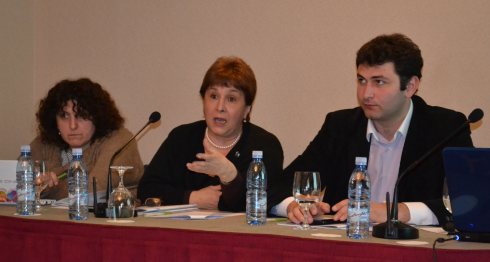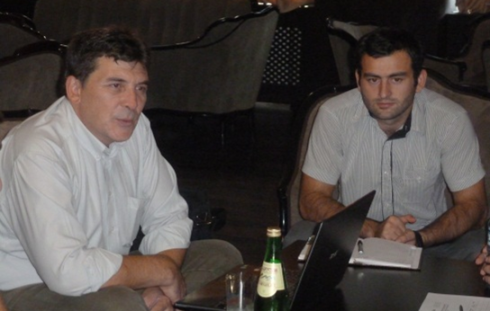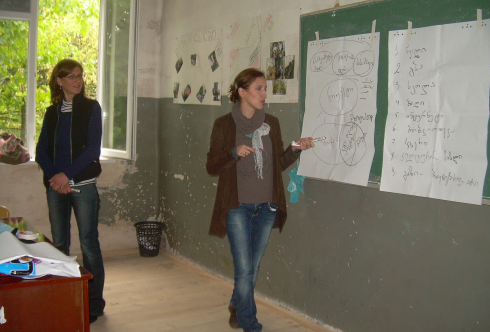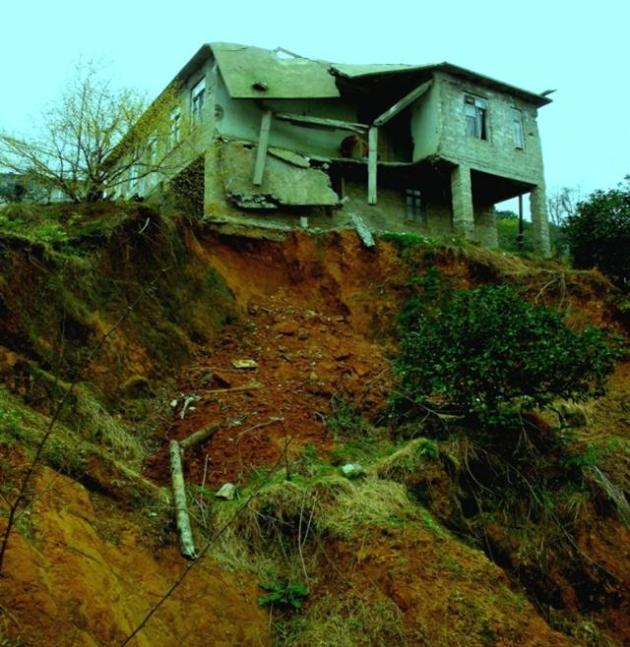CSOs in Georgia often do not coordinate with each other. Additionally, many Georgian CSOs do not work on issues that are priorities for the public, which contributes to low public trust in CSOs. To increase the effectiveness of CSOs operating outside of Tbilisi and ensure that they are accountable to their constituencies, the Civil Development Association (CiDA) formed the Regional Civil Society Network (R-CSN), a group of 40 CSOs from 11 regions in Georgia.
“Civil Society organizations should strive to create new means of communication with their direct beneficiaries,” said Zviad Devdariani, Executive Director of CiDA. “The trust in and awareness of these organizations will rise if the modes of intervention and activities of CSOs change considerably.”
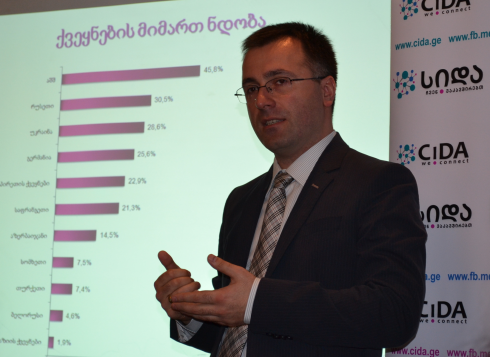
Zviad Devdariani, Executive Director of CiDA, discusses the results of research conducted by R-CSN, a network of 40 regional CSOs in Georgia. The research found that the priority issues for Georgians living outside of Tbilisi are healthcare, agriculture, education, and political instability. R-CSN members will use their research to inform decision makers and as a basis for their future advocacy efforts.
Formed in late 2012, R-CSN has already conducted research to determine the policy issues of greatest concern to the public in 10 Georgian regions – Kvemo Kartli, Samtskhe-Javakheti, Kakheti, Imereti, Samegrelo-Zemo Svaneti, Racha-Lechkhumi, Shida Khartli, Guria, Adjara, and Mtskheta-Mtianeti. R-CSN members worked together to develop the research methodology, organize focus groups in each region, and present their results to the media and the general public.
R-CSN found that the top priority for Georgians living outside of Tbilisi was healthcare, including the availability of health insurance, access to primary healthcare, and the quality of medical service provision. The next three priorities were agriculture (including the quality of equipment, the availability of pesticides, and access to markets), education (including the quality and infrastructure of pre-schools and general education), and political instability.
“This was a good example of collaboration between the members of the network,” noted Mr. Devdariani. “With good facilitation, the network can also deal with the problems identified and implement long-term strategies to rectify them.”
Members of R-CSN will soon present their research results to MPs and Parliamentary committee members and sign a memorandum of cooperation with the Ministry of Regional Development and Infrastructure. R-CSN members will also use the research as a basis for grant proposals for international donor organizations.
EWMI G-PAC finances CiDA’s efforts through its Networking Facilitators Grant Program.

